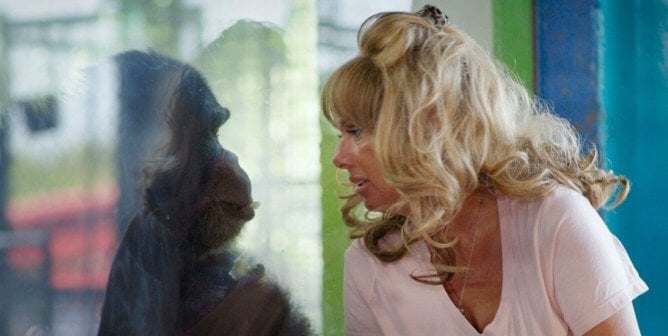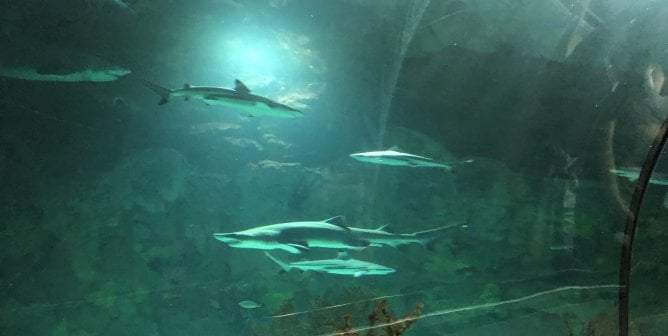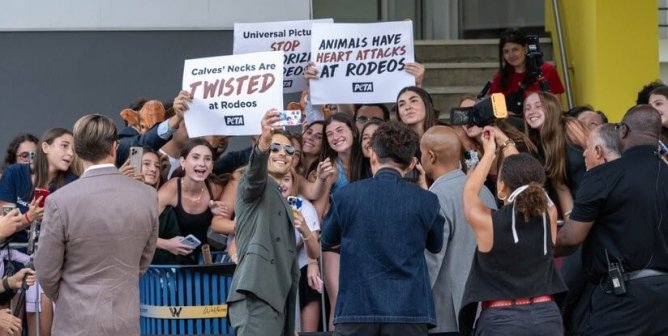No One Should Be This Lonely. You Can Help These Animals Today.
Almost all animals (including humans) crave closeness and companionship with members of their own species. So why are some exhibitors forcing captive wild animals to live for years—or even decades—in solitary confinement? Animals are not ours to use for entertainment, and it’s certainly not our right to deny them the opportunity to fulfil their most basic needs. Take action to help PETA get these lonely captive wild animals into accredited and reputable facilities that value lives over dollars.
Asha the Elephant at Natural Bridge Zoo in Natural Bridge, Virginia
In nature, elephants live and protect one another in matriarchal family herds that forage, play, bathe, and raise babies together. But for decades, elephant Asha has been held alone at Natural Bridge Zoo and used for rides. In the winter, she must withstand freezing temperatures, snow, and ice. In the summer, she is made to walk in circles with tourists on her back in the sweltering heat for hours under the threat of a bullhook. She has been seen with cracked and overgrown toenails, which contribute to serious foot problems, a leading cause of disability or death in captive elephants, but she is still made to give rides. Let’s get her out of Natural Bridge Zoo and into an accredited sanctuary.
Alvin the Capybara at SeaQuest Aquarium in Fort Worth, Texas
Alvin’s pitiful concrete enclosure at SeaQuest bears no resemblance to the forests and wetlands of South America that free capybara families call home. He should be foraging for vegetation, swimming, and living in a group of as many as 40 family members and friends. Instead, he has been without companionship for more than a year at an aquarium in a shopping mall. He arrived at SeaQuest with his two brothers, Simon and Theodore, when they were just 6 weeks old. But the company sold his brothers and reportedly shipped them off to a drive-through safari, leaving Alvin alone. The SeaQuest Aquariums’ animal death toll is in the hundreds. Help PETA get this capybara released.
Lil Trix, Jocko Jr., and Handsome the Baboons at Waccatee Zoo in Myrtle Beach, South Carolina
Lil Trix, Jocko Jr., and Handsome can’t touch or groom one another, play or forage together, or do any of the other things baboon troops do in nature. Held for years by themselves in cramped cages at a shabby roadside zoo, they’re all showing signs of extreme psychological distress, such as rocking back and forth, pacing, swaying, and rolling their heads. These animals should be in a reputable primate sanctuary that cares about animals. Help PETA get them there.
Simba the Lion and Jambo the Giraffe at Tregembo Animal Park in Wilmington, North Carolina
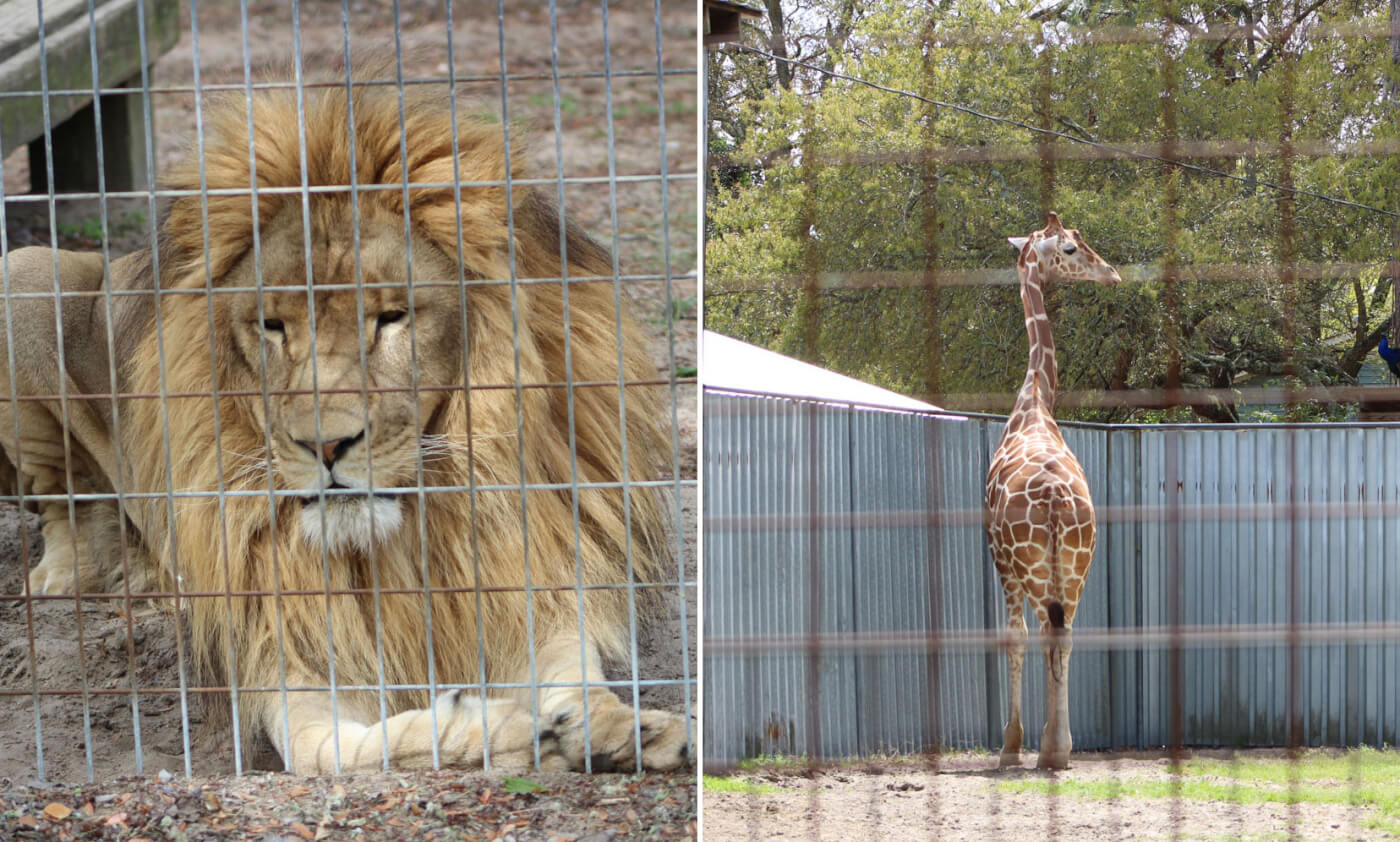
If allowed to live as nature intended, breathtaking lion Simba would be with a pride of about 15 lions, raising cubs in a territory of up to 100 square miles. But this striking symbol of strength and courage has been reduced to living alone in a minuscule patch of dirt behind a chain-link fence so that tourists can gawk at him. Life isn’t much better for Jambo. He should be with his family of about half a dozen giraffes, stretching his neck gracefully into the treetops and pulling down yummy snacks. Instead, he can only stare out over his sheet metal fence in a lonely dirt lot at a world that he can’t experience.
Tregembo Animal Park has been repeatedly cited for failing to provide animals with medical care and many other infractions. In 2017, you helped us spring two beautiful bears, Ben and Bogey, from this hellhole—and they definitely seem to love their lush new home in an accredited sanctuary. We’re working to do the same for Simba and Jambo.
Chance the Chimpanzee at Big Cat Habitat in Sarasota, Florida
Chance has known little in his life but abuse and exploitation. If he had been left alone and allowed to live as chimpanzees should, he would have stayed by his mother’s side until age 4 or 5 and then spent the rest of his life in the tight-knit community that he was born into. But he was torn away from his mother at just 6 months old and then bought and sold, eventually ending up with the notorious Rosaire family of animal exhibitors at Big Cat Habitat and Gulf Coast “Sanctuary.” They “trained” him to perform and leased him out, including for use in the film The Wolf of Wall Street. When he isn’t leased, he’s made to put on shows for Big Cat Habitat’s paying customers.
During one of Chance’s performances, a PETA eyewitness watched Pam Rosaire yell at him, “No! Do it again! Do it right!” She repeatedly jerked him backward by a leash around his neck, forcing him into a human-like standing posture. The chimpanzee responded by using his hands to pull back on the chain, which appeared to be choking him. Rosaire told the audience that he was doing a “bodybuilder pose” to show off for them. She continued to yell at him and force him to do a series of demeaning tricks, all while pulling the clearly distressed animal by the leash. Chance deserves so much better.
Lucie the Lion at the Barry R. Kirshner Wildlife Foundation in Oroville, California
Don’t let the fancy name fool you. This roadside zoo is as abusive as they come.
Instead of traversing wide expanses of grassland, raising cubs, and sharing mothering responsibilities with other lions in a pride, Lucie is stuck inside a cramped, barren wire cage by herself, day in and day out, so that humans can stare at her. Like many other animals at Kirshner, she repeatedly paces back and forth, a behavior indicative of psychological distress.
The facility’s owner, Roberta Kirshner, has received repeated citations from the U.S. Department of Agriculture, including for denying Lucie needed medical care. Lucie has been observed to be severely lame and reluctant even to stand. Former volunteers have contacted PETA to report that Kirshner often hits animals—even those with broken bones—and that an alarming number of animals die at the facility. Let’s get Lucie and the rest into reputable sanctuaries.
Django the Monkey in ‘Jerry Brown, The Monkey Man’ Traveling Show
It sounds like something out of vaudeville, but Django is still living the nightmare of the “organ grinder and monkey” shows of a century ago. If she’d been allowed to live as nature intended, she would be gliding through trees with her family troop and letting them know when she’d found some particularly tasty fruits and leaves using their well-developed language. But because of capuchins’ intellect and small size, they are frequently exploited for human entertainment.
Even though Django is a senior at 27 years old, Brown is still carting her around the country, forcing her to perform at fairs and festivals. He even rents her out for children’s birthday parties, even though she has lashed out in apparent anger and frustration. After learning from PETA about her suffering, many event organizers have cancelled her appearances. Let’s end them for good and get Django into a reputable sanctuary where she can spend the rest of her life in peace.
Lolita the Orca at the Miami Seaquarium
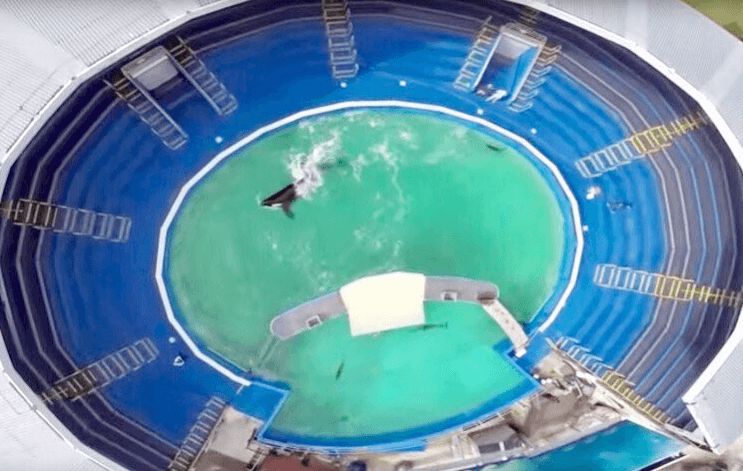 Few animals have lived without companionship as long as Lolita the orca has. Torn away from her home and family in Washington’s Puget Sound decades ago along with dozens of other orcas who were sold to marine parks, she has languished in captivity for nearly half a century. She’s imprisoned in the smallest, oldest orca tank in the world at the Miami Seaquarium. The rest of her family pod, including an orca believed to be her mother, is still swimming freely, diving, and talking to one another in the pod’s own distinct dialect.
Few animals have lived without companionship as long as Lolita the orca has. Torn away from her home and family in Washington’s Puget Sound decades ago along with dozens of other orcas who were sold to marine parks, she has languished in captivity for nearly half a century. She’s imprisoned in the smallest, oldest orca tank in the world at the Miami Seaquarium. The rest of her family pod, including an orca believed to be her mother, is still swimming freely, diving, and talking to one another in the pod’s own distinct dialect.
Lolita hasn’t had contact with another orca in 40 years—her tankmate, Hugo, died after repeatedly ramming his head into a wall in 1980. She’s housed only with incompatible members of other dolphin species, who attack her, raking her with their teeth. PETA is pushing for Lolita to be released to a seaside sanctuary in her home waters. Let’s get her there.

